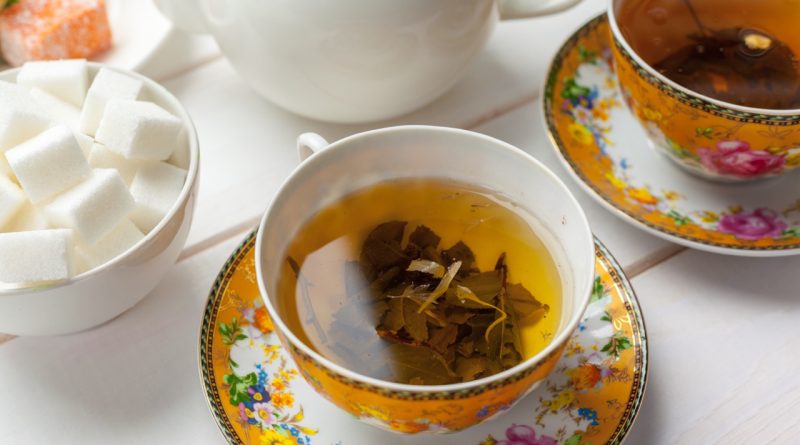How Adagio Incorporates Modern Technology Into A Traditional Industry
===
In an era where technology permeates every aspect of our lives, even traditional industries are embracing modern advancements to enhance their practices. Adagio, a prominent name in the tea industry, exemplifies this trend by merging age-old traditions with cutting-edge technology. This article explores how Adagio navigates this delicate balance, ensuring their products appeal to contemporary consumers while maintaining the rich heritage of tea production.
Understanding Adagio: A Blend of Tradition and Innovation
Adagio was established with a vision to provide high-quality tea while honoring the time-honored traditions associated with tea cultivation and preparation. The company sources its tea from established plantations, ensuring that ancient practices in tea growing are respected. By doing so, Adagio maintains the authenticity of its products, creating a direct link between the consumer and the historic roots of tea culture.
However, Adagio does not shy away from innovation. The company integrates modern agricultural practices alongside traditional methods to enhance the quality of its tea. For instance, they utilize precision farming techniques, which involve data collection and analysis to monitor crop health and optimize yield. This blend of tradition and innovation not only results in superior tea but also supports sustainable agricultural practices.
Moreover, Adagio’s commitment to quality is evident in their selection process. The company employs modern grading systems that utilize technology to assess the quality of leaves more accurately. This ensures that only the finest tea reaches consumers, all while preserving the artisanal approach that tea lovers cherish.
The Role of Technology in Modern Tea Production Techniques
Adagio employs advanced processing techniques to ensure that each batch of tea meets stringent quality standards. For instance, the use of temperature-controlled environments during drying and oxidation processes allows for better flavor retention and consistency. This technological integration helps retain the delicate nuances of flavor that can be lost through traditional processing methods.
Additionally, Adagio harnesses the power of automation in its production lines. Automated machinery aids in sorting and packaging, which not only speeds up the process but also minimizes human error. This level of precision ensures that every package of tea is uniform and of the highest quality, aligning with consumer expectations for consistency.
Furthermore, the company utilizes data analytics to forecast demand and manage inventory effectively. By analyzing purchasing trends and seasonal variations, Adagio can optimize production schedules and reduce waste, thus enhancing overall efficiency in their supply chain.
Enhancing Customer Experience with Digital Solutions
In today’s digital age, Adagio recognizes the importance of providing a seamless customer experience. The company has developed a user-friendly website that allows consumers to browse an extensive range of teas, learn about their origins, and discover brewing techniques. This focus on digital accessibility caters to both seasoned tea aficionados and newcomers alike.
Adagio also leverages social media platforms to engage with customers and promote their products. Through interactive content, such as brewing tutorials and tea tastings, they create a community around tea appreciation. This engagement not only fosters loyalty but also educates consumers about the intricacies of tea, enriching their overall experience.
Moreover, Adagio has implemented a subscription service that utilizes technology to personalize tea selections based on individual preferences. By analyzing customer data, the company can recommend teas that align with personal tastes, making the shopping experience more tailored and enjoyable.
Sustainable Practices: Technology’s Impact on Tea Sustainability
Sustainability is a crucial consideration in modern tea production, and Adagio is committed to minimizing its environmental footprint. The company employs modern irrigation techniques that conserve water while maximizing crop yield. By utilizing sensors and smart irrigation systems, Adagio can ensure that water is used efficiently, promoting sustainable farming practices.
In addition, Adagio prioritizes eco-friendly packaging solutions by incorporating biodegradable materials and reducing plastic usage. This move not only appeals to environmentally conscious consumers but also aligns with global efforts to reduce waste in the food industry. By investing in sustainable packaging, Adagio sets a precedent for other companies in the sector to follow.
Furthermore, Adagio collaborates with suppliers who share their commitment to sustainable practices. By integrating technology that tracks the carbon footprint of their supply chain, the company can ensure that its sourcing practices contribute positively to the environment. This comprehensive approach to sustainability reflects a growing recognition of the need for responsible practices within the traditional tea industry.
===
Adagio’s innovative use of technology within a traditional industry serves as a compelling example of how modern advancements can coexist with heritage practices. By embracing techniques that enhance production efficiency, customer experience, and sustainability, Adagio not only preserves the essence of tea but also positions itself as a forward-thinking leader in the industry. As consumers become increasingly aware of quality and sustainability, Adagio’s approach offers a roadmap for others in the food sector seeking to balance tradition with innovation.
